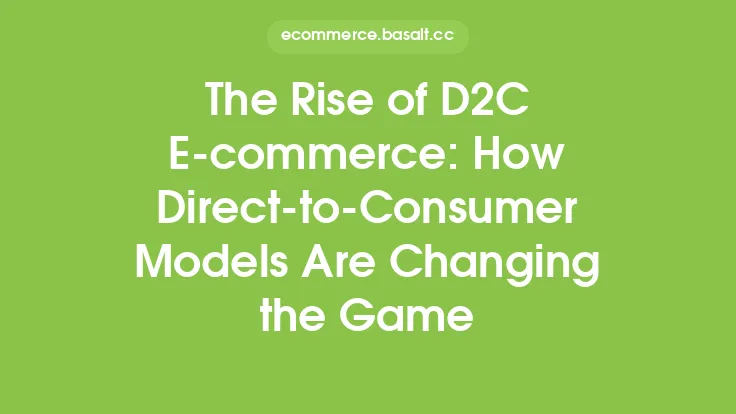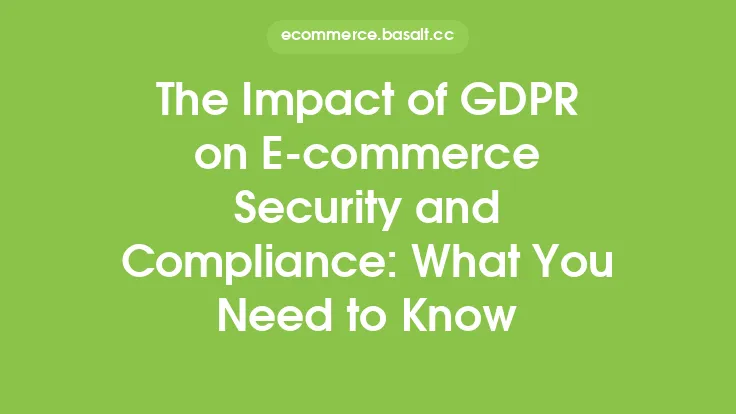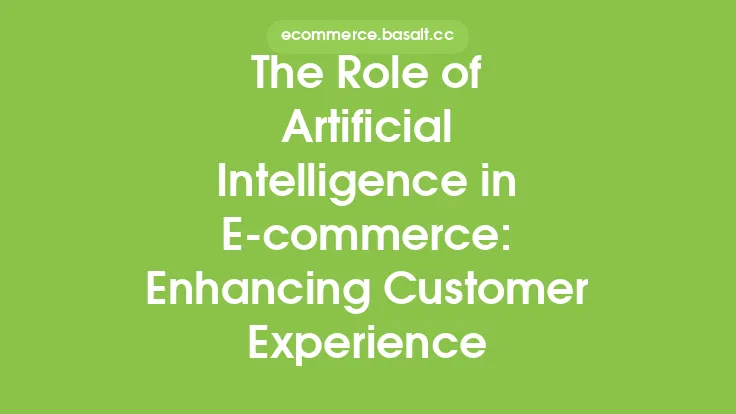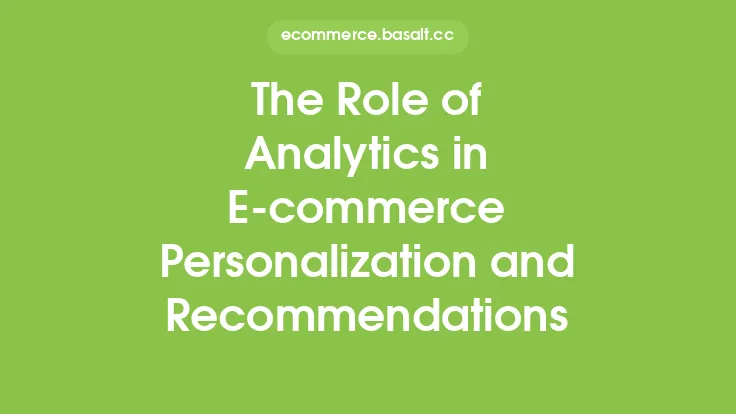The concept of e-commerce has been around for several decades, with its roots dating back to the early 1960s. During this time, companies began using electronic data interchange (EDI) to facilitate the exchange of business documents, such as orders and invoices, between different organizations. However, it wasn't until the widespread adoption of the internet in the 1990s that e-commerce as we know it today began to take shape.
Introduction to Online Shopping
The first online shopping platforms emerged in the late 1990s, with companies like Amazon and eBay leading the charge. These early platforms allowed consumers to browse and purchase products from the comfort of their own homes, using their personal computers and dial-up internet connections. The introduction of online shopping marked a significant shift in the way people shopped, providing greater convenience, flexibility, and access to a wider range of products.
The Rise of E-commerce Platforms
As the popularity of online shopping grew, so did the number of e-commerce platforms. Companies like Shopify, Magento, and BigCommerce emerged, providing businesses with the tools and infrastructure needed to create their own online stores. These platforms offered a range of features, including website design templates, payment processing, and inventory management, making it easier for businesses to establish an online presence.
The Impact of Mobile Devices
The introduction of mobile devices, such as smartphones and tablets, has had a significant impact on the e-commerce industry. With the rise of mobile commerce, consumers can now shop online from anywhere, at any time, using their mobile devices. This has led to an increase in online sales, as well as a shift towards more mobile-friendly website designs and user experiences.
The Role of Social Media
Social media has also played a significant role in the evolution of e-commerce. Platforms like Facebook, Instagram, and Twitter have become important channels for businesses to reach and engage with their customers. Social media has enabled businesses to build brand awareness, drive website traffic, and increase online sales. Many social media platforms have also introduced features like shopping carts and payment processing, making it easier for businesses to sell products directly to their followers.
The Growth of Digital Payments
The growth of digital payments has been another key factor in the evolution of e-commerce. The introduction of payment gateways like PayPal, Stripe, and Square has made it easier for businesses to accept online payments. The rise of mobile wallets like Apple Pay, Google Pay, and Samsung Pay has also provided consumers with more convenient and secure ways to make online payments.
The Importance of Security
As e-commerce has grown, so has the importance of security. With more and more consumers shopping online, businesses must ensure that their websites and payment systems are secure and trustworthy. This has led to the development of various security protocols, such as SSL encryption and two-factor authentication, to protect sensitive customer data.
The Emergence of New Business Models
The evolution of e-commerce has also led to the emergence of new business models. Companies like Uber and Airbnb have pioneered the sharing economy, while businesses like Netflix and Spotify have introduced subscription-based models. These new business models have disrupted traditional industries and created new opportunities for entrepreneurs and businesses.
The Globalization of E-commerce
The internet has made it possible for businesses to reach customers all over the world. The globalization of e-commerce has enabled businesses to expand their customer base, increase revenue, and compete in new markets. However, it has also introduced new challenges, such as language barriers, cultural differences, and varying regulatory requirements.
The Future of E-commerce
While it is difficult to predict exactly what the future of e-commerce will hold, it is clear that the industry will continue to evolve and grow. Emerging technologies like artificial intelligence, virtual reality, and blockchain will likely play a significant role in shaping the future of e-commerce. As the industry continues to evolve, businesses must remain adaptable and focused on providing exceptional customer experiences to remain competitive.





